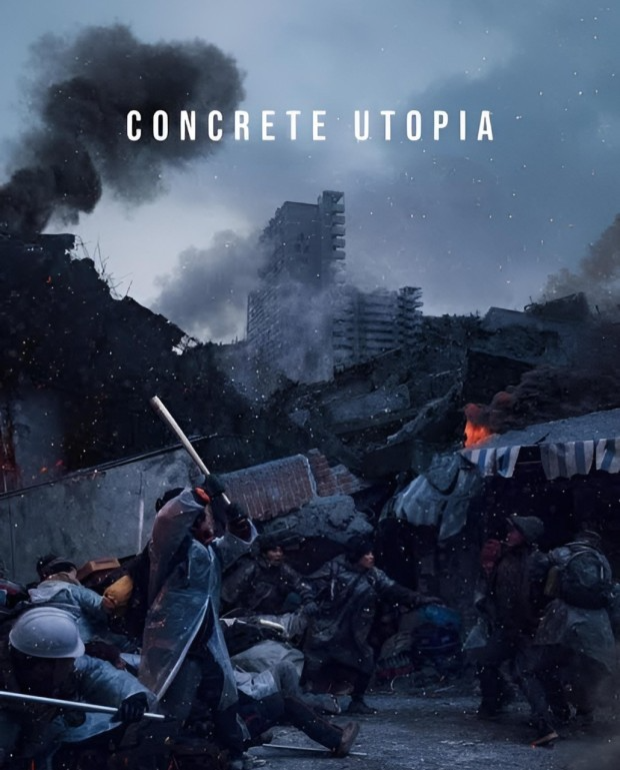“The Netflix Original Korean Series, Kingdom” is a groundbreaking show that merges historical drama with the zombie apocalypse genre. Set during Korea’s Joseon Dynasty, it tells the story of a crown prince who embarks on a perilous journey to investigate a mysterious plague spreading across the country. As he uncovers dark secrets and battles zombies, the series also delves into political intrigue and the social struggles of the era. With its unique blend of history and horror, “Kingdom” has captivated audiences worldwide, showcasing rich storytelling and high production values.

Plot
“Kingdom” is a South Korean series blending historical drama with zombie horror, set during the Joseon Dynasty. It follows Crown Prince Lee Chang, who investigates a mysterious plague spreading across the kingdom. As he uncovers political intrigue and betrayal, he faces hordes of the undead threatening the realm. The series explores themes of power, greed, and the struggle for survival, set against a backdrop of stunning landscapes and intricate political dynamics. With its rich storytelling and unique setting, “Kingdom” offers a fresh take on the zombie genre.
Cast and Characters
The cast of “The Netflix Original Korean Series, Kingdom” brings a compelling depth to the series, led by Ju Ji-hoon as Crown Prince Lee Chang, who embarks on a quest to save his people from a mysterious undead plague. Bae Doona portrays Seo-bi, a nurse determined to find a cure, while Ryu Seung-ryong plays the conniving Cho Hak-ju, the chief state councilor with dark ambitions. The performances of the main cast, along with their supporting actors, enrich the narrative, creating a multidimensional portrayal of courage, betrayal, and the quest for power amidst chaos.
Production Insights
The production of “The Netflix Original Korean Series, Kingdom” is a testament to the meticulous planning and creative vision behind the scenes. Directed by Kim Seong-hun and written by Kim Eun-hee, the series is noted for its high production values, including detailed period costumes, expansive set designs, and groundbreaking use of special effects to bring the zombie apocalypse to life within the historical setting of the Joseon Dynasty. The creators faced challenges in maintaining historical accuracy while integrating the fictional elements of the storyline, showcasing their dedication to creating a visually stunning and narratively engaging series.
Cultural and Historical Context
“The Netflix Original Korean Series, Kingdom” intricately weaves Joseon Dynasty history and Korean folklore into its narrative, offering a rich cultural and historical context. Set against the backdrop of ancient Korea, the series explores societal hierarchies and political intrigue, drawing from historical events and cultural beliefs about the undead and epidemics. This historical context not only adds depth to the story but also reflects on contemporary themes, making “Kingdom” a compelling blend of past and present.
Themes and Symbolism
“The Netflix Original Korean Series, Kingdom” has received widespread critical acclaim for its innovative blend of historical drama and zombie horror, earning praise for its storytelling, production quality, and performances. Critics and audiences alike have lauded its ability to mix socio-political commentary with thrilling action, contributing significantly to the global rise in popularity of Korean content. Its success has not only set a high standard for genre-bending series but also highlighted the global appetite for diverse storytelling perspectives.
Critical Reception and Impact.
Review
As Netflix’s first self-produced Korean drama, “Kingdom” marked a significant milestone, successfully establishing Netflix’s presence in Korea and leading to increased investment in Korean dramas. This success paved the way for global hits like “Squid Game.” “Kingdom” is often praised for its blend of political thriller elements with zombie drama, offering a unique take on the genre with action scenes not typically seen in Korean dramas. The series has been compared to high-quality Korean zombie content following “Train to Busan,” with “Kingdom” setting itself apart by depicting the origin of a zombie outbreak in a historical context. Despite its acclaim, there has been controversy over some actors’ performances, sparking discussions about directing and acting depth in the series.
5 Behind Stories
- In January 2018, during the production of Season 1 of “Kingdom,” there was a tragic incident involving the death of staff member Go Geun-hee due to overwork. This event led to a tribute in the drama’s ending credits, sparking searches and discussions online. There have been numerous reports and testimonies regarding the extreme working conditions faced by the art department, with some describing it as akin to exploitation.
- The Netflix Original series “Kingdom” had a production budget of about 3 million dollars (approximately 2 billion KRW) per episode, making it one of the most expensive non-US, non-UK Netflix Original productions as of 2019. Initially planned as an 8-episode series, positive feedback from internal screenings led to its reduction to 6 episodes per season, adopting a seasonal format, with a second season confirmed. Kim Seong-hun directed the first season and the first episode of the second season, while Park In-je took over the direction for the remainder of season
- “Kingdom” boldly breaks from the Hollywood zombie genre cliché of not showing pregnant women and children dying or becoming zombies. The series notably includes detailed depictions of children’s deaths, setting a stark tone of realism and brutality in its narrative. For example, the series does not shy away from showing a young boy being the first victim to turn into a zombie and even includes scenes where children are attacked by other child zombies, highlighting the merciless nature of the epidemic. This approach adds a layer of horror and tragedy, emphasizing the indiscriminate threat posed by the outbreak.
- While “Kingdom” shares themes with the movie “Rampant,” it is not plagiarism but a coincidence. “Kingdom” was developed from a project Kim Eun-hee had been preparing since 2011 and became a comic prototype titled “Land of the Gods” in 2015, created with cartoonist Yang Kyung-il. It wasn’t until 2017 that Netflix decided to produce it. Thus, “Land of the Gods” served more as a prototype for “Kingdom” rather than a direct source, with the former being published in a combined volume with Yang’s other work, “Burning Hell,” under the title “Burning Hell, Land of the Gods.” Both comics are set in a fictional Joseon Dynasty but tell independent stories.
- While South Korea’s international recognition has increased, some foreigners still confuse Korean cultural elements with Japanese, such as thinking hanbok is a type of kimono or expecting samurais and ninjas in Korean content. Misunderstandings also occur with the royal guard being mistaken for samurais. However, interest in distinct Korean culture, such as traditional hats (gat) seen in “Kingdom,” has grown, leading to increased curiosity and appreciation for Korea’s unique history and traditional attire, distinguishing it from neighboring cultures.


